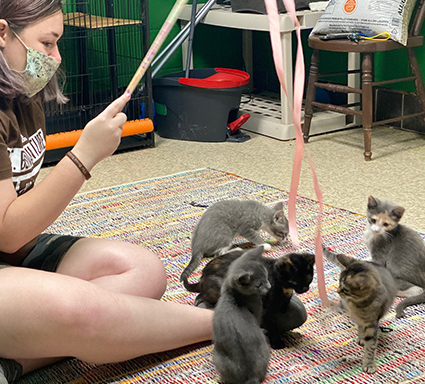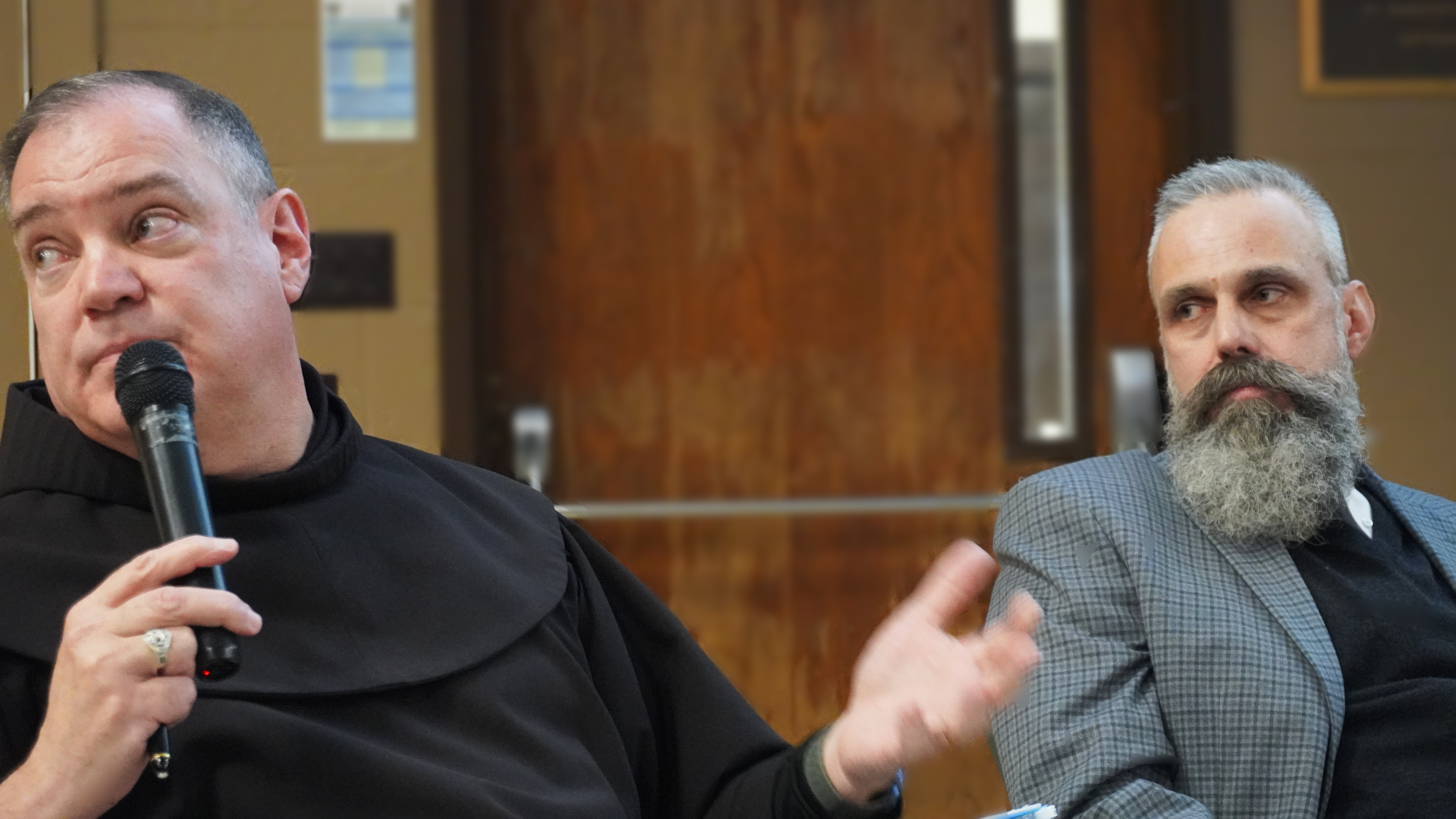While preparing for a final in one of his courses, Michael Flanigan asked his professor what his theology was. “If you have the opportunity to help someone, do it,” his professor said.
Flanigan took these words as his faith commitment and asked himself how he could make a difference. He now works for Saint’s Place, a 19-year-old organization that is set to help refugees, people forced to leave a country to escape war, famine, genocide and poverty.
At Tuesday’s presentation, “A Refugee’s Journey to Rochester,” in the Doyle Trustees Room, about 25 people listened to Flanigan, warehouse and crew manager, and Isabel Miller, executive director of Saint’s Place, speak about the organization.
“Each year, we dress about 1,250 refugees against the harsh winters of Rochester,” said Miller.
Miller said the organization strictly follows three practices. These practices include dressing, providing furnished homes and tutoring the refugees.
Saint’s Place operates one of the largest clothing closets in Rochester. Open four days a week, the closet, located at St. John of Rochester in Fairport, New York, assists refugees one-on-one to find clothing among donated items.
The closet also provides children with a backpack and school supplies, some of which are donated by the students and faculty of St. Bonaventure University.
“For the last five years, the freshman class, after orientation, have donated school supplies that are given to the refugees,” said Miller. “Because of your generosity, we, at Saint’s Place, don’t have to pay for six and a half months of supplies.”
Students and faculty also visit Saint’s Place twice a year to volunteer. At their most recent visit in January, they set up two refugee families in an upstairs-and-downstairs-apartment building, said Miller.
“Me and my roommates had the opportunity to go up in January,” said Alexis Young, a senior sports studies major. “It was such a rewarding experience and I would recommend it to anyone.”
Young said she came up with the idea to set up a clothing drive on campus to help benefit Saint’s Place.
“We want to set up bright colored bins in the RC and all of the dorm buildings,” Young said. “We would accept clothing and shoes. If everyone could pitch in and help, we would appreciate it.”
Saint’s Place furnishes apartments for the refugees, filling them with paintings, tables, sofas and even plastic flowers, said Miller. They also leave the refugees with completely furnished bathrooms and kitchens with accessories, which are for the most part donations, said Miller.
The Catholic Family Center, an organization that helps disadvantaged people, notifies Saint’s Place when they find refugees. Then, Michael and his team go to the warehouse and pull donated furniture and clothing and furnish the apartments, said Miller.
One of the most important aspects of this process is raising money to get new and clean beds for the refugees. The challenge costs them about $125,000 a year, said Miller.
Another objective the organization focuses on is tutoring, which is something they take pride in, said Miller.
“What we do is quite the challenge and commitment, however, it is a wonderful experience,” said Miller.
Tutors hold one-hour tutoring sessions a week for adults, as well as children. They teach and practice English with tutees and help students with homework assignments.
“We tutor 100 refugees on a weekly basis,” said Miller. “We have five staff members: three who work full time and two part time. We also have volunteers who give up their time and who are extremely dedicated.”
Although the organization has affiliations with Catholic parishes such as St. Louis and St. John, they are non-denominational, said Miller.
“We let the work we do speak for itself,” said Miller. “We leave religion explicitly behind. We have Lutheran people, Jewish people and people who are not affiliated to a religion volunteering for us.”
Miller said Saint’s Place does anything they can to better the lives of refugees.
“Refugees show us such bravery,” said Miller. “They take the lowest-paying jobs, such as landscaping, digging, or even sales associate positions at Wal-Mart and Wegmans and do these jobs well. We take great pride in our refugees because they take pride in themselves.”
Flanigan said that the neighborhoods these refugees are placed in are not the best, however, it is better than having no home at all.
“To know that you’ve been a part of making an empty space a home for those who don’t have one gives satisfaction among myself and the volunteers,” said Flanigan. “When we’re driving back to Saint’s Place at the end of the day, we feel that we are making a difference in not an abstract way, but in a real way.”
While they are the ones tutoring the refugees, Flanigan feels that some of the greatest lessons he has learned are from them.
“I think we learn more from refugees than they even learn from us,” said Flanigan. “To see the smile on a young child’s face when we see them grabbing trucks or picking up dolls out of the stash of toys we leave in the house is very rewarding.”
Miller said one way to help refugees and Saint’s Place is to tell people to bring goods such as shampoo, detergent and other items not covered by food stamps to a party as admission.
She also urged those who are interested in ministry, to speak to Chris Brown, director of first-year experience and orientation, and Jeff Sved, director of the Franciscan Center for Social Concern, about getting involved.
To learn more about Saint’s Place and their mission, visit http://www.saintsplace.org.
engjg14@bonaventure.edu









